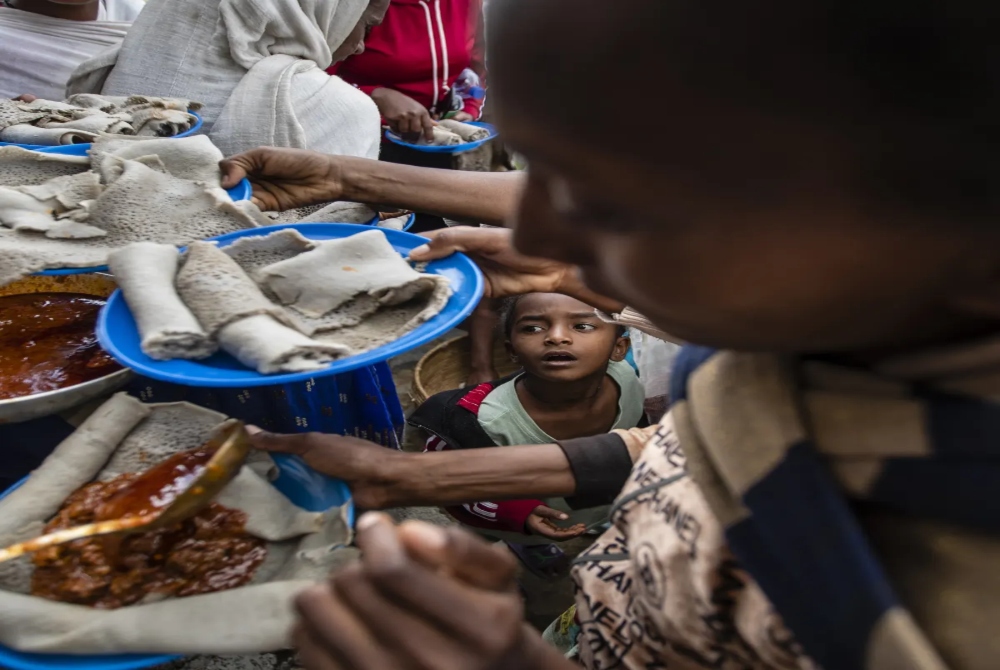The UN's Humanitarian Failures in Ethiopia Demand
Accountability
Earlier this year, during a seven-month editing process, I
was informed that the word “failure” appeared too frequently in our draft
evaluation report on the aid response in northern Ethiopia. This was not just
an editing issue - the report was expected to highlight examples of effective
humanitarian practice. Unfortunately, there was little good news to report.
I led a team evaluating the inter-agency humanitarian
response to the crisis in Tigray, Afar, and Amhara between November 2020 and
April 2023. Our findings, published on June 3, describe the UN-led aid effort
as a systemic failure.
Our comprehensive investigation revealed government
obstruction of aid, disunity among UN agencies, and a lack of response to
widespread sexual violence. Despite having unparalleled access to the situation
and conducting hundreds of interviews with humanitarians, government officials,
and affected communities, the same issues surfaced repeatedly.
The Ethiopian government was particularly effective at
blocking aid, starving civilians, destroying healthcare structures, cutting
telecommunications, and halting banking operations. These obstacles, while
significant, should have driven a more robust humanitarian response.
UN Secretary-General António Guterres, recognizing the risk
of inaction to the UN’s reputation, called for mobilizing humanitarian efforts
seven months into the war. However, the subsequent system-wide scale-up was
largely unsuccessful. The 28 UN agencies and offices in Addis Ababa failed to
unify and protect the civilian population in the three northern regions. Leaked
audio recordings of UN meetings revealed that some agency directors in Ethiopia
even denied credible reports of large-scale sexual violence.
Over the next two years, multiple high-profile international
figures, including the EU High Representative for Foreign Affairs and the US Secretary
of State, met with Prime Minister Abiy Ahmed. Despite frequent discussions of
the crisis, tangible improvements on the ground were negligible. Humanitarian
staff in Tigray reported little information on the outcomes of these meetings,
and their efforts were reduced to counting the few convoys allowed into the
region.
The UN's silence on the harassment, arbitrary arrest,
detention, and torture of humanitarian staff—many of Tigrayan ethnic origin - by
Ethiopian security forces was particularly egregious. In December 2023,
Guterres invoked Article 99 of the UN Charter for Gaza, indicating that
meaningful humanitarian operations were impossible under the conditions. A
similar step should have been taken for northern Ethiopia.
The crisis in Sudan mirrors Ethiopia's, with UN agencies
again lacking a clear strategy and ineffective in negotiating access.
Preventable failures included a lack of leadership, unclear reporting lines,
unreliable estimates of those in need, and disarray in humanitarian
coordination in Addis Ababa. UN directors should have been replaced early on.
Despite numerous humanitarian reform initiatives since the
mid-2000s, implementation still falls short. The focus last year was on
distributing food aid following reports of significant supply diversion, a
problem that has long plagued Ethiopia. This issue diverted attention from
holding perpetrators of war crimes accountable.
Our evaluation report is one of the few public documents
detailing the gravity of the international response failure in northern
Ethiopia. The UN team in the country is expected to develop a management
response, with most recommendations aimed at the global humanitarian
coordination mechanism, IASC. However, the IASC is preoccupied with other
crises and transitioning leadership, raising concerns that this report may be
overlooked.
The failed response in northern Ethiopia has significant
implications for the UN’s reputation as an effective humanitarian actor.
Understanding why the UN fails in civil wars is crucial for fostering necessary
reforms. This evaluation exposes the international humanitarian system's
mistakes and suggests ways to address them. Endless global discussions on
capacity, localization, and integrating humanitarian and development assistance
have failed to prevent repeated failures. Accountability is long overdue.










.jpg)